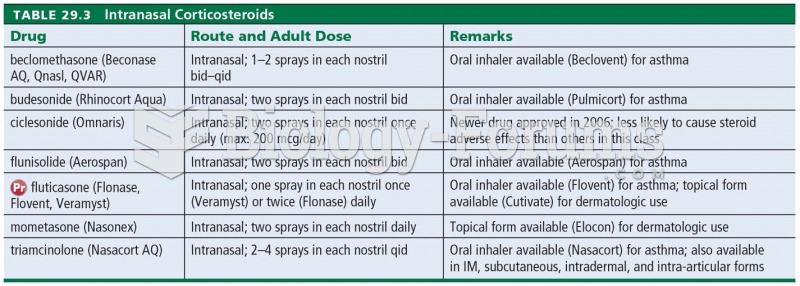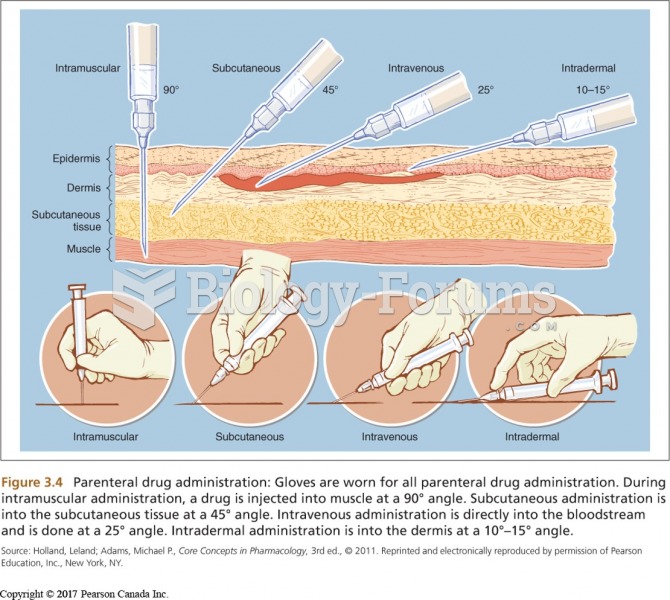|
|
|
In 1864, the first barbiturate (barbituric acid) was synthesized.
Many medications that are used to treat infertility are injected subcutaneously. This is easy to do using the anterior abdomen as the site of injection but avoiding the area directly around the belly button.
For pediatric patients, intravenous fluids are the most commonly cited products involved in medication errors that are reported to the USP.
Bacteria have flourished on the earth for over three billion years. They were the first life forms on the planet.
Though newer “smart” infusion pumps are increasingly becoming more sophisticated, they cannot prevent all programming and administration errors. Health care professionals that use smart infusion pumps must still practice the rights of medication administration and have other professionals double-check all high-risk infusions.
 Hyperopia (farsightedness). In the uncorrected top figure, the image would come into focus behind th
Hyperopia (farsightedness). In the uncorrected top figure, the image would come into focus behind th
 Intradermal drug administration: (b) the administration site is prepped Source: Pearson Education/PH
Intradermal drug administration: (b) the administration site is prepped Source: Pearson Education/PH





